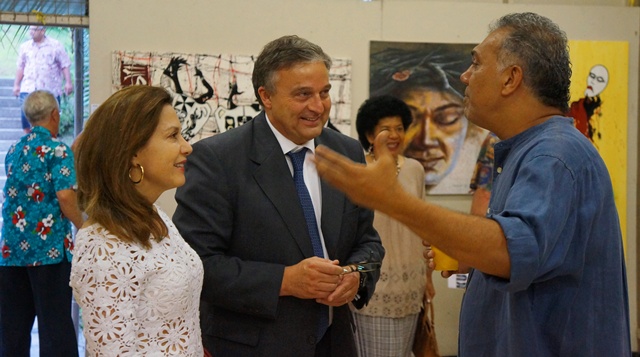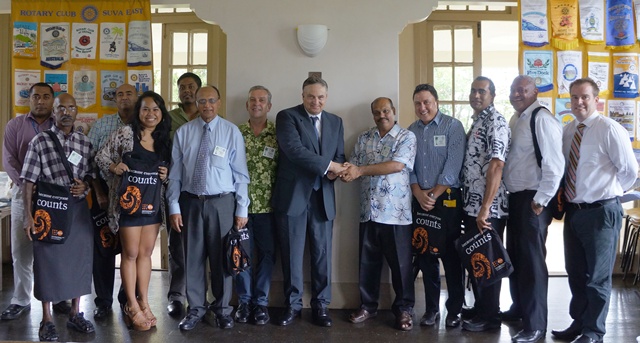November 25 (yesterday) marked the beginning of 16 days of activism against the violence perpetrated on women. The movement does not, as some have argued, dismiss the violence perpetrated by women or violence inflicted on other genders.
When one in every three women are subjected to physical, emotional and or verbal abuse globally, in this day and age in what we like to claim is a civilized species, then you could, however grudgingly, at least agree that there is merit in such targeted campaigns.
More than 600 million women are living in countries where domestic abuse is not against the law. While we celebrate that there are countries where abusing women is criminalized, even then gender-based violence continues to top the list of civil crimes.
Based on socialization which place sons on a pedestal, son preference has resulted in millions of infanticides (of girl babies). In September (2013), the International Business Times reported the arrest of a 28-year-old driver for murder, for drowning his one-year-old daughter in front of his wife. When she tried to save her daughter, her husband beat her. A few months ago, the issue of gender-biased prenatal sex selection hit the headlines after a Bollywood star was accused of having his wife go through tests to confirm the sex of their baby, an illegal practice in his country.
A video campaign on national television in Fiji on the elimination of violence against women ends with men stating that violence against women is not their culture. Implicit in this statement is how much violence against women has become a norm, but the good news is culture is fluid and it is up to us to change it for the girls and women of our communities.
Culturalism has been, for the most part the fall-back justification for the ill-treatment of women and girls, across the world. Culturalism perpetuates practices like female genital mutilation and cutting and breeds a culture of silence, often as destructive for women as it is for the children who have to live with it, quietly.
Data from the family health and safety studies undertaken by the United Nations Population Fund (UNFPA) Pacific Sub-Regional Office (PSRO) supported by Australian aid in Kiribati, Samoa, Solomon Islands and Vanuatu revealed that between three to eight per cent of women had their first sexual experience before their 15th birthday and 23 to 50 per cent before they turned 18. The younger the age of first sexual experience the more likely that it was forced.
For the United Nations Population Fund, our mandate area of gender equality and reproductive rights is very much impacted by this social scourge. When women cannot exercise their right to access sexual and reproductive health services, it is another form of violence, and a further violation of their basic human rights.
"Violence against women and girls is an affront to human dignity," UNFPA Pacific Director and Representative, Dr. Laurent Zessler said yesterday as the world begins the observation of 16 days of activism against violence against women.

"The Pacific office of the United Nations Population Fund is committed to seeing through the remaining family health and safety studies in Nauru, Cook Islands, Palau, Republic of the Marshall Islands and Federated States of Micronesia.
"We are encouraged that the countries which had requested for the study previously and completed it have implemented recommendations, for example the way their health facilities respond to cases that come in involving domestic violence."
As the Pacific region enters its hurricane season, the link between violence against women and disaster settings must be acknowledged and considered when national or regional plans against disaster are being discussed or designed.
Violence against women are exacerbated at this time because the risks which exist before disaster strikes are compounded by displacement, breakdowns in social norms and the general lack of access to services. It is during this time that women become more vulnerable to forced sex or because they cannot access contraceptives, are at a higher risk of getting pregnant without planning for one.
During the severe flooding in the Western Division at the beginning of this year (2012), the UNFPA Pacific office distributed some 2500 dignity packs. After the tsunami in the Solomon Islands (Temotu) earlier this year, 1000 dignity packs were distributed, and a more long-term investment has been the training of and establishment of ‘communities of practice' in Papua New Guinea, Solomon Islands and Fiji, to ensure gender dynamics are incorporated in disaster preparedness planning, and that communities are cognizant of measures for the prevention of and how to respond to gender-based violence.
Dignity packs are prepared for women specifically, a section of the community whose unique needs are not usually considered in national response plans. The boxes include some articles of clothing and personal hygiene items including sanitary pads. UNFPA Pacific works with non-government organisation partners on the ground to distribute them.
Such planning by communities to prepare for and respond to issues which emerge during disaster situations Dr. Laurent Zessler said would do well from more private sector involvement and partnership.
Making reference to advocacy work and financial support from philanthropists like Melinda and Bill Gates, Dr Zessler said there was nothing stopping local partnerships which could be about the distribution of condoms for example that could ensure access to everyone.
"The United Nations Population Fund Pacific Sub-Regional Office welcomes private sector partnership, we are already partners if you consider it from the perspective that we are working with the same group of people," Dr. Zessler said.
"Private sector support and partnership in the work we do as United Nations agencies which are development partners to governments, is critical. There are numerous ways we can work together to harness national and regional progress."
Planning and response mechanism, distribution of contraceptives to ensure access and similar approaches will not however have much traction if half the population remains cowered in submissive fear.
"Eliminating violence is about empowering every individual to be part of the global family without fear or discrimination, or both," Dr Zessler said.
"Violence restricts women participation in development; they will not be able to contribute substantially to civic engagement from which we as communities and nations could significantly benefit from.
"Violence against women generates instability and makes peace harder to achieve. We would all do ourselves a favour eliminating it from our communities and societies: let's stop mistreating women, create a culture we can all be proud of."


